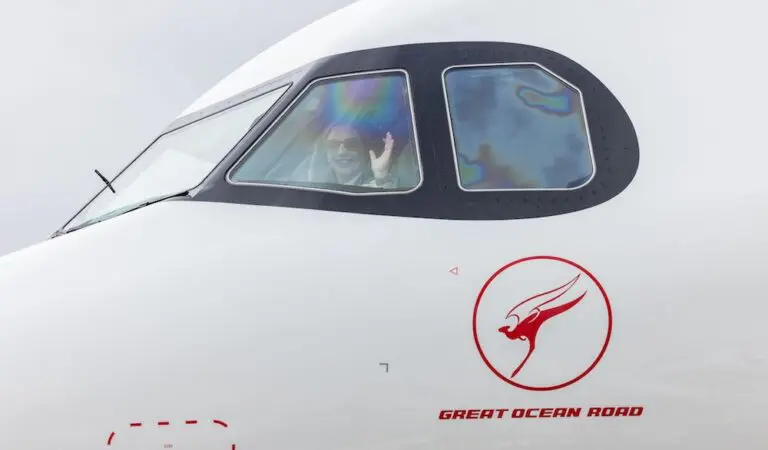Has anyone noticed how travel time on planes is increasing, despite having the most ergonomically advanced aircrafts in the skies? Could it be all because of the pesky Internet?
Whilst there’s been a required massive shift in security procedures at airports over the past 20 years which can account for more time spent on the ground when travelling, the time it takes from airport A to airport B is also growing, according to Motherboard.
The online site cites a paper in The Review of Economics and Statistics, “which describes the increased times as an intentional cost cutting move on the parts of airlines,” to which Motherboard says is a “shift that neatly correlates to the growth in online ticket sales and Internet access in general”.
The paper’s author, Dr. Itai Ater, of Tel Aviv University’s Recanati Business School, used statistical information from USA’s transportation bureau and computer usage data depicting the geographical growth of Internet usage from 1997 to 2007, and the percentage of airline tickets booked online directly by consumers (as opposed to travel agents) which went up from 0.5% to some 50%, while overall Internet usage went up from 19% to 76%.
“While I was studying at Stanford from 2003 to 2008, I was interested in understanding why the length of ‘red eye’ flights between San Francisco and New York had increased from five hours and 20 minutes to five hours and 40 minutes,” Ater said as reported on Motherboard.
“It became clear, after examining flight data, that planes were flying at higher altitudes to cut fuel costs — there is less friction at higher altitudes — and thus required more time to land. But the question remained: Why? Why were airlines cutting costs at the expense of time?”
While even Motherboard admits Ater’s conclusion is “perhaps a bit of a leap”, the observation remains debatable.
“In the early 1990s, when travel agencies sold over 80% of airline tickets, flights typically appeared on the travel agent’s screen in ascending order according to their scheduled durations,” he said.
 “Given that travel agents booked over 80% of flights from the first screen and that the majority of the tickets were sold from the first line of search results, airlines had strong incentives to maintain short scheduled flying times. This incentive changed as the Internet became the most common channel for purchasing airline tickets, and flight duration was no longer the main criterion to sort flights.”
“Given that travel agents booked over 80% of flights from the first screen and that the majority of the tickets were sold from the first line of search results, airlines had strong incentives to maintain short scheduled flying times. This incentive changed as the Internet became the most common channel for purchasing airline tickets, and flight duration was no longer the main criterion to sort flights.”
While that may be true, Motherboard delves deeper and finds correlations with the rising price of fuel between 1997 and 2007 – the same period of mass growth of Internet usage. However, while the struggle of airlines all over the world trying to balance profits while managing soaring fuel prices has been well-documented Motherboard cites a report by the International Council on Clean Transport which shows “fuel efficiency isn’t consistent across airlines and, what’s more, it would seem that the more Internet sales-geared airlines, the budget carriers … are firmly in the middle of the pack, rather than way out in front as we might expect from an airline category whose very raison d’être is price competition”.
“We do control for oil prices but the Internet still has a significant impact on flight times,” Ater told Motherboard.
“Intuitively, the idea is that the increase in oil prices was similar for all flights in a given day. However, we find that the change in flight times was greater for flights that carry more passengers with Internet access than flights that carry fewer passengers with Internet access.”
“For instance, though the change in oil prices was similar, at least for same carrier flights, the increase in flight times for flights departing from San Francisco was greater than the corresponding increase in flight times for flights from Albuquerque,” he said.
Motherboard claims the difference in that case, when the cost of fuel remains constant and rates of Internet access fluctuate, could simply be written off as “web price wars”.





